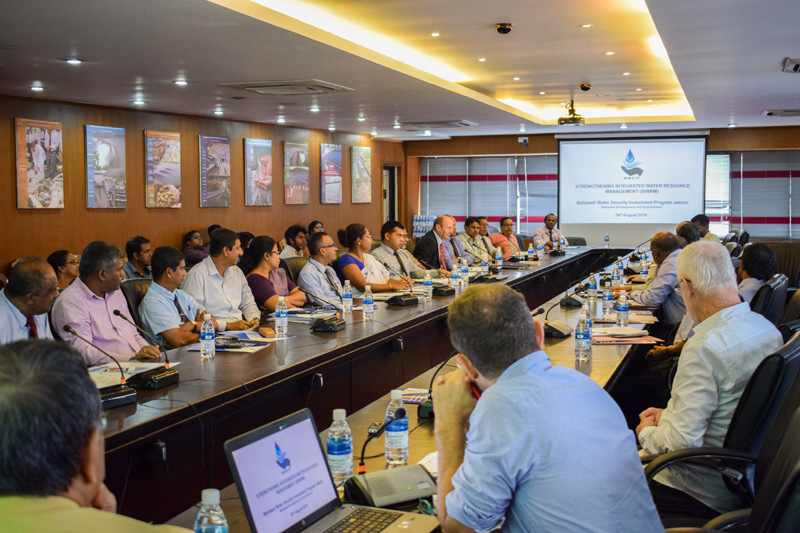The specific discussion was held with the involvement of a multi-disciplinary team represented by national and international water technocrats, to initiate developing a Terms of Reference (ToR) for SIWRM Consultancy by defining the entry points for consultancy interventions, which will be most effective in tackling the present less efficient approach to water resources management in Sri Lanka. Lal Induruwage, Regional Coordinator, GWP South Asia and Ranjith Ratnayake, Country Coordinator, GWP Sri Lanka have also took part in the discussion while Mr Ratnayake was invited to deliver the closing remarks of the day’s meeting.
Fresh water resources in Sri Lanka remain a free public good with state acting as the trustee and custodian of the resource - the Government of Sri Lanka is the driving force behind the water sector development. Although some 40 state agencies across various line ministries are involved in administration of water sector in the country, these ministries having their own legal frameworks result insufficient harmonisation, duplication of work, contradiction and limited implementation of IWRM Principles in the country.
In the given context, Mahaweli Water Security Investment Programme (MWSIP) mobilised a team of consultants under its consultancy package named Strengthening of Integrated Water Resources Management (SIWRM), where the consultancy will recommend a dissemination plan for coordinating the development and management of Mahaweli Basin’s water resources in a manner that addresses economic efficiency, social equity and ecological sustainability – the three pillars of IWRM. MWSIP is a development programme implemented by the Ministry of Mahaweli Development and Environment (MMDE), Sri Lanka. The Ministry has established a Programme Management Unit (PMU) with support from the Mahaweli Authority of Sri Lanka (MASL) and the Department of Irrigation (DOI) to execute the Programme. MWSIP is funded by the Asian Development Bank (ADB) under a multi-tranche financing facility co-financed by the Government of Sri Lanka is being implemented from 2015 to 2024.
